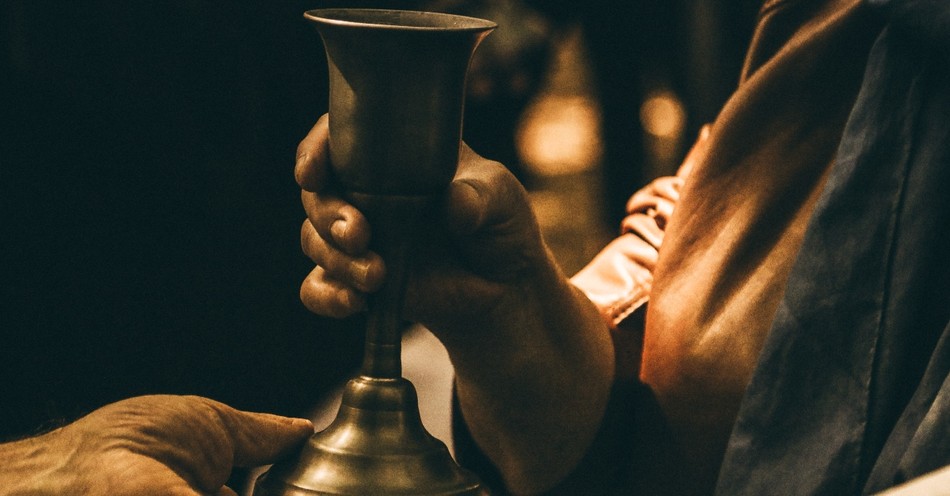In difficult seasons, such as the one I am currently going through, I often think of Jesus alone and face-down in the dark under the olive groves in the Garden of Gethsemane.
Hours before His betrayal by Judas and His arrest by Roman soldiers, Jesus prays in Matthew 26:39 to His Father to remove the onerous responsibility set before Him: His impending journey to the Cross to pay the ultimate price for our sins with His precious blood.
“My Father, if it is possible, may this cup be taken from me.”
Though l am merely an imperfect and broken human, I, too, find myself asking the Lord lately, if He can pass my cup of pain, rejection, and harsh reality from me. After all, doesn’t Hebrews 4:16 state that we can approach God’s throne in our time of need to receive His help and grace?
Admittedly, my present ordeal is not as crushing as what Jesus endured at Golgotha. Whereas our Savior bore the compound trespasses of the world on His shoulders, I, on the other hand, only bear the sins and consequences of my own making and those closest to me.
Whereas Jesus sweated blood, the tears I shed consist of salt and water. Whereas Jesus comprehended the gravity of His situation from an omniscient perspective, I, on the other hand, can barely see the wood for the trees.
Major differences, as you will no doubt agree.
That being said, what makes Jesus relatable in this Bible passage is His undiluted humanity. On the eve of His showdown with Satan, Jesus knew what we only know in retrospect: He was going to be sentenced to death by crucifixion and made to endure hours of torture, pain, and degradation by those people who, only days before, laid palm leaves before Him with joyous cries of “Hosanna!”
The divine part of Jesus looked beyond the Cross to the hope of Salvation that mankind would receive as a result of His sacrifice.
However, the human part of Jesus reflected the most intensive self-wrestling match between emotional duress and spiritual obedience that anyone has or ever will endure.
If we knew we would inevitably have to experience the level of suffering that Jesus knew lay before Him, we would have been freaked out, too, right?
However, does Jesus asking His Father to let the cup pass from Him take away from His sacrifice on the Cross? Does it impede the mission that He was sent to earth for — to save us from ourselves?
The Metaphoric Significance of the Cup
Bible verses such as Matthew 20:22 and Mark 10:38 reveal to us that Jesus was aware of the cup He must drink. However, what is the symbolism behind Jesus’ cup metaphor, and why did He use it?
In the original Greek text, the word “cup” is poterion, meaning a drinking vessel. Prior to His time spent in prayer in the Garden of Gethsemane, Jesus, and His disciples celebrated Passover or Pesach.
During the course of the meal, it was customary to drink deeply from a communal cup of wine before “passing it on” to the next person.
If you were the one to drink the last ruby or amber drops in the cup, instead of receiving refreshing, life-giving wine, you would instead have to be content with the salty and acerbic dregs that gathered at the bottom.
The bitter-tasting cup is used as a metaphor to symbolize God’s acts of wrath in Old Testament scriptures, such as Isaiah 51:17, Jeremiah 25:15–16, and Ezekiel 23:33, as well as Revelation 14:10 and 16:19.
If we consider that the sour, vinegary, and acrid remnants in a wine cup represent not only the suffering and agony Jesus would have to undergo but that His Father would incur His wrath on His only Son in order to save us, it is understandable that Jesus would ask His Father to take the cup away from Him.
It’s Only Human
Earlier, we covered that Matthew 26:39 is a true reflection of Jesus’ humanity. He is the Word-made-flesh that came to dwell amongst us (John 1:14), meaning He experienced the same emotions, yearnings, and thought processes that we did. The only difference between Jesus and us, however, is that He was without blemish.
That being the case, asking to be relieved of the terrifying ordeal of the Cross was not a sin, for Jesus was incapable of sinning. It did not in any way interfere with the outcome of the mission, for if it did, you and I wouldn’t be seated in eternal righteousness with our Lord today.
Jesus’ petition in the Garden of Gethsemane is what you or I would have prayed if put in the same position. Let’s be honest; we have asked God to take away our suffering for much less.
It is in our nature to abhor hardship and distress; it is our survival instinct to want to run in the opposite direction when confronted with danger. It’s only human. We’re human. And so was that part of Jesus who asked His Father for the cup to be removed.
What is reassuring in Jesus’ request is that it sets a wonderful precedent for us to be able to ask the Lord anything, safe in the security that we will be heard and loved rather than judged.
Even at His lowest, Jesus had the strength to teach us a further lesson in how to have an intimate relationship with our Creator. For that reason, maybe His request for the cup to be taken away from Him wasn’t a sidebar — it was part of His ministry.
Pick Up Your Cross Like Jesus
Jesus may have had a moment where He asked God to deploy a Plan B for our Salvation; however, let us not forget what He says in the second half of Matthew 26:39.
“Yet not as I will, but as you will.”
That’s the crux of this whole Scripture.
When all was said and done, Jesus put His own desires aside to obey God’s will. He took up His cross, figuratively and literally, and continued to obey His Father in full awareness that our eternal fate outweighed the fear and dread He felt for His own mortal coil.
This is a further encouragement and lesson from Jesus to take up our own crosses and submit ourselves to God’s will for our lives, for His plans and purposes far exceed what we could ever hope and dream for ourselves in our own finite strength.
Paul the Apostle reiterates this in Romans 8:18: “I consider that our present sufferings are not worth comparing with the glory that will be revealed in us.”
Help Carry the Burden
In the Garden of Gethsemane, Jesus asked Peter and the two sons of Zebedee to stay and keep watch with Him while He prayed, for His soul was “overwhelmed with sorrow to the point of death” (Matthew 26.38).
Unfortunately, the three disciples fell asleep. Whether they had eaten too much Passover dinner or they were simply exhausted, we don’t know: Either way, their spirits were willing, but their flesh was weak, and Jesus was left alone in His despair.
Feeling like you have been abandoned to face your troubles alone is a feeling that many of us have experienced. Therefore, if you know someone who is dealing with a difficult situation in their life, reach out to them.
Offer to pray for them, help them financially, or even just lend your ear and simply listen. A problem shared is a problem halved, and we, as part of the Body of Christ, are instructed to help carry each other’s burdens (Galatians 6:2).
As for me, my loving husband helps to bear the weight of my current situation. Additionally, I have recently been blessed by a wonderful lady entering my life, who is now my accountability partner.
Although I wish that the cup I must drink from be taken from me, I lift my eyes to Jesus and take heart that I have a friend and mentor in Him who has complete compassion for what I am going through.
I put my faith and trust in the Lord in the knowledge that His ways are higher than my ways, and He can turn anything evil into good. If it is His will that I must go through this battle, He will give me the strength to do so.
And, of course, I thank the Lord every morning for the ultimate sacrifice He made of His own Son in order that I, and we, may know His eternal love.
If you, too, are in the middle of a trial or a difficult situation, I pray that you will cling to the One who can empathize with your situation and that you draw on His strength.
God will make all things work for your good. Just trust in Him.
For further reading:
Why Did Jesus Pray 'Let This Cup Pass from Me'?
What Did Jesus Mean When He Asked God “Let This Cup Pass from Me”?
Why Did Jesus Mean By “Let This Cup Pass from Me”?
Photo Credit: ©Unsplash/reskp

Madeline Kalu is an Australian Christian writer and the co-founder of Jacob’s Ladder Blog and The Proverbs 31 Home. She is also the co-author of the “My Year of Miracles 2024” journal, which encourages a daily reflection on the miracles that God performs in our lives throughout 2024. Madeline lives in Germany with her husband Solomon and the family’s two cats, who were rescued from the Ukrainian war zone.


.jpg)
